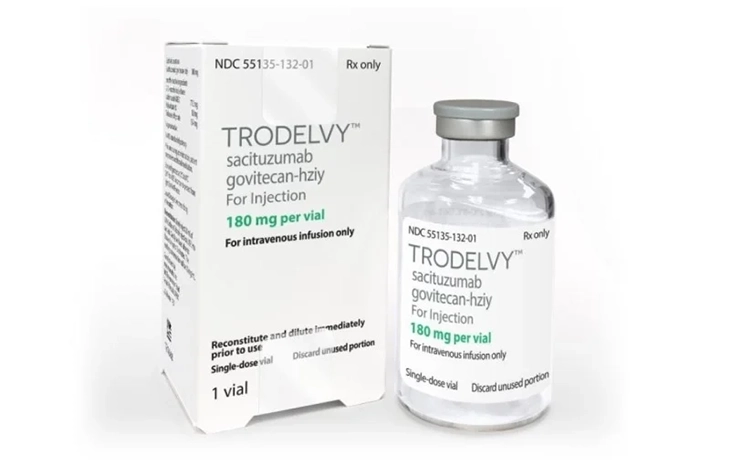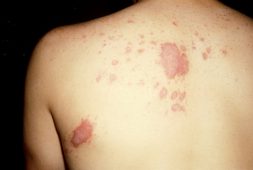
In clinical trials made, scientists saw that those who took Trodelvy had better survival rates, especially for those who have been diagnosed with HR-positive/HER2-negative breast cancer. The drug was previously cleared for triple-negative tumors has also been approved for HR-positive/HER2-negative breast cancer.
Yes, it’s good news for those diagnosed with the most common subtype of breast cancer. They now have a new choice because the U.S. Food and Drug Administration (FDA) has expanded its approval of the oncology drug called sacituzumab govitecan (Trodelvy) for advanced hormone receptor (HR)–positive, human epidermal growth factor receptor 2 (HER2)–negative (HR-positive/HER2-negative) tumors.
Trodelvy for oftentimes prescribed for adult patients with advanced HR-positive/HER2-negative breast cancer that can’t be addressed with just surgery and that with growth that hasn’t been eradicated by chemotherapy or endocrine therapy. The latter was made to disrupt the hormones that promote tumor growth, as per Gilead Sciences, the company that developed the drug.
When it comes to breast cancer, HR-positive/HER2-negative tumors are the most common subtype, according to the National Cancer Institute (NCI). Most, if not all, patients survive at least five years when this is caught in its early stages, and more than 90 percent of the patients live long when the tumors have only spread to some surrounding tissue near the breast, said the experts from the NCI.
Unfortunately, the five-year survival rate drops to around 32 percent when these tumors have metastasized, or spread to more further tissues and organs.
“Trodelvy will certainly change the treatment landscape” for advanced HR-positive/HER2-negative breast cancer,” Kiven Erique Lukong, PhD said. She is a professor and a breast cancer researcher at the University of Saskatchewan College of Medicine in Canada. She, however, was not part of the trials for the new approval. “It will benefit patients with metastasis who have exhausted all previous treatment options including surgery.”
According to Experts: Trodelvy Fills in the Gap in Breast Cancer Treatment
Trodelvy could help stop tumor growth, ease the symptoms so patients enjoy a better quality of life, and also extend survival times, said Hope Rugo, MD. She is a professor of medicine and director of breast oncology and clinical trials education at the University of California San Francisco Comprehensive Cancer Center.
“We run out of treatment options long before many patients are ready to stop therapy — they still have good quality of life and organ function,” Dr. Rugo said. She is the lead author of a pivotal clinical trial the FDA reviewed before approving Trodelvy for people with advanced HR-positive/HER2-negative breast cancer.
Trodelvy belongs to a family of drugs known as antibody-drug conjugates. Included on this list is an anti-cancer drug and an antibody that fights an antigen, or toxin in the immune system. This plays a vital part in certain types of cancer.
The FDA approved Trodelvy in 2020 as well for those who have been diagnosed with triple-negative breast cancer. This type involves tumors that don’t have estrogen or progesterone receptors and make little or none of the protein HER2.
Trodelvy Showed Better Outcome than Just Chemotherapy Alone
Researchers started to look into the application of the drug for other types of breast cancer, and presented preliminary late-stage results from the ongoing TROPiCS-02 trial last June at the 2022 conference of the American Society of Clinical Oncology (ASCO). A total of 543 patients in the trial were diagnosed with advanced HR-positive/HER2-negative breast cancer. These patients have already been prescribed with multiple courses of chemotherapy, hormone therapy, and other types of drugs that target cancer.
What the researchers did was randomly assign patients to receive either of the 2 things: chemotherapy or Trodelvy and continue treatment until side effects nulled further treatment or when the tumors spread once more. The median time without tumor growth, a period that was shorter for 50 percent of the patients and longer for the 50 percent, was 5.5 months with Trodelvy and 4 months with chemotherapy, as per interim trial results last January 2022.
With the use of Trodelvy, 46 percent of the patients had no tumor progression at six months while 21 percent still had no tumor recurrence after a year, the interim analysis saw. In comparison, 30 percent of chemotherapy patients had no cancer progression at six months, and 7 percent saw no tumor recurrence at a year.
Additional results were presented at the 2022 ESMO Congress and the results were able to present a clear survival advantage when Trodelvy is used. This analysis was based on interim results as of July 2022 and they found that patients survived a median of 14.4 months on Trodelvy when placed side by side of 11.2 months on chemotherapy.
Most patients reported to have experienced side effects, which made an impact on 74 percent of those on Trodelvy and 60 percent on chemotherapy, as per the results presented at ASCO. Neutropenia, or dangerously low levels of white blood cells, had been the most reported serious side effect. This affected 51 percent of patients on Trodelvy. Other effects reported were diarrhea, which impacted around 10 percent. As for the treatment-related death reports, there had been one in the group that took Trodelvy.
Because of its risks of neutropenia and diarrhea, Trodelvy comes with a black box warning, which is the FDA’s strictest.



